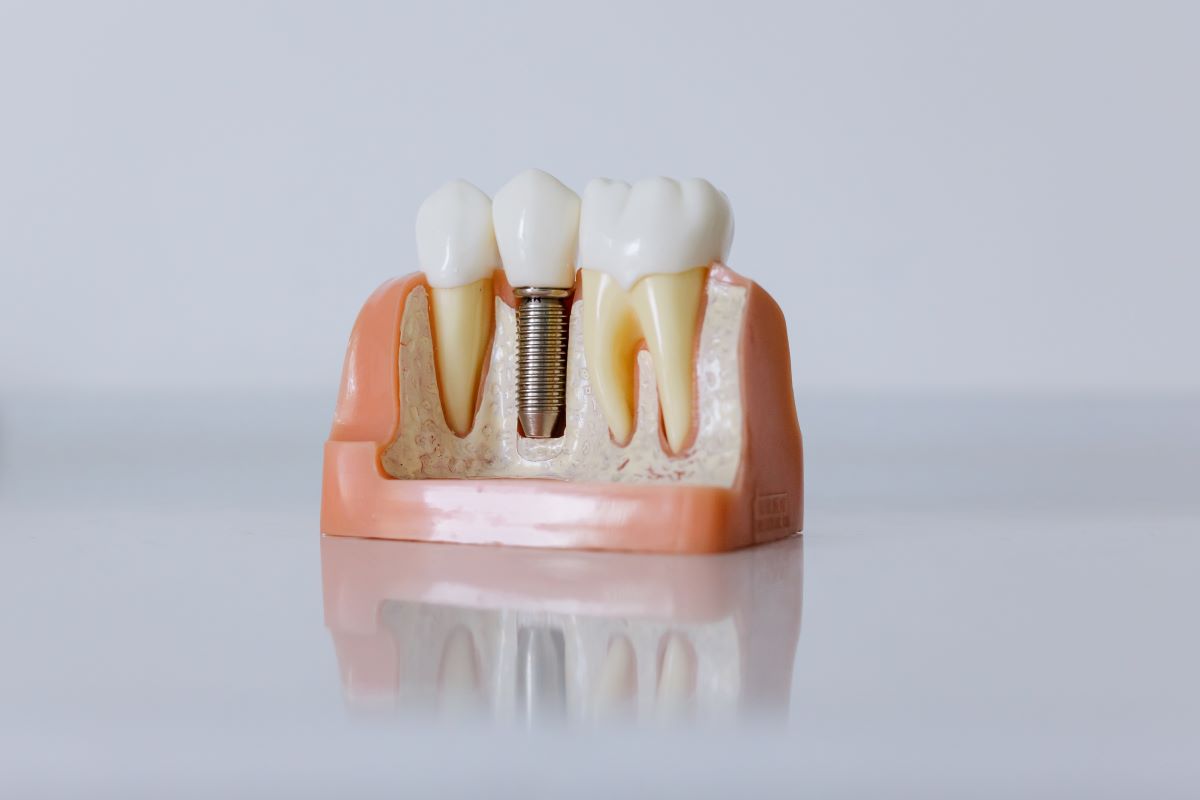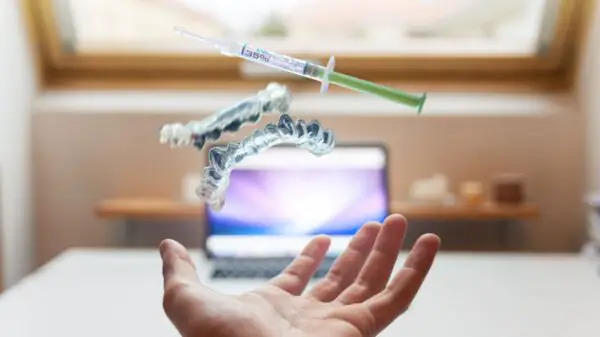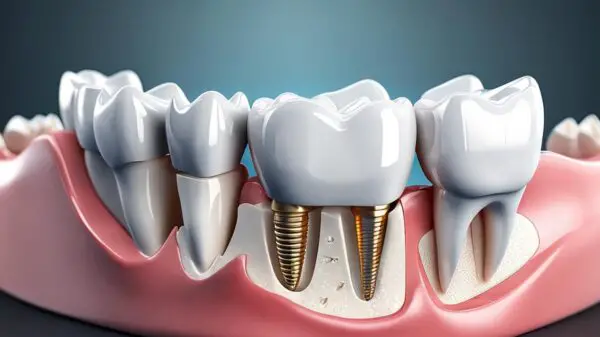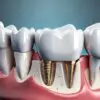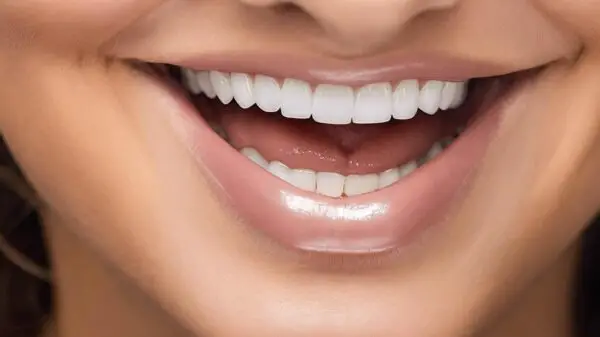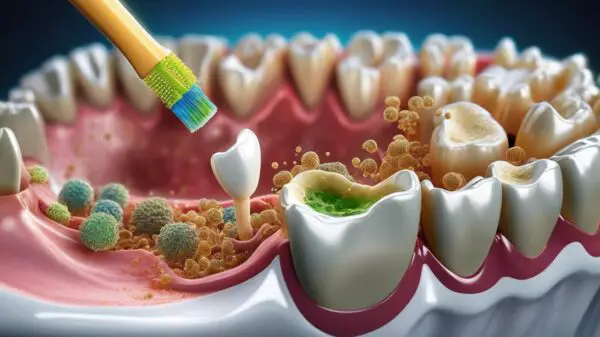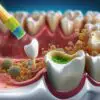What Foods Promote Dental Implant Healing?
When it comes to dental implant healing, the food you consume plays a crucial role in the recovery process. A balanced diet consisting of nutrient-rich foods can promote faster healing, strengthen your immune system, and ensure the long-term success of your dental implants. In this article, we will explore the top foods that promote dental implant healing and provide valuable insights into their benefits. So let’s dive in and discover the power of nutrition in your oral health journey.
The Significance of Dental Implant Healing
Dental implant healing is a critical phase in the journey toward restoring your smile and oral functionality. It refers to the process through which the implant fuses with the jawbone, ensuring stability and durability. Proper healing is essential for the long-term success of dental implants, and nutrition plays a pivotal role in this process.
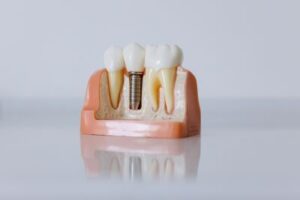 Foods That Accelerate Healing
Foods That Accelerate Healing
Protein-Rich Foods
One of the key nutrients for dental implant healing is protein. Proteins are the building blocks of tissues and play a crucial role in the repair and regeneration of cells. Including protein-rich foods in your diet helps speed up the healing process and strengthens the surrounding tissues.
Some excellent sources of protein include:
- Lean meats such as chicken, turkey, and fish.
- Eggs, which are packed with essential amino acids.
- Legumes like lentils and beans.
- Dairy products such as milk, yogurt, and cheese.
- Tofu and other soy-based products.
Vitamin C-Rich Foods
Vitamin C is an antioxidant that supports the immune system and aids in collagen synthesis. Collagen is a vital component of connective tissues and plays a crucial role in the healing process. Consuming foods rich in vitamin C can promote tissue repair and reduce the risk of complications.
Add the following vitamin C-rich foods to your diet:
- Citrus fruits like oranges, grapefruits, and lemons.
- Berries such as strawberries, blueberries, and raspberries.
- Kiwi, papaya, and pineapple.
- Leafy green vegetables like spinach and kale.
- Bell peppers and tomatoes.
Omega-3 Fatty Acid Sources
Omega-3 fatty acids have anti-inflammatory properties, which can be beneficial during the healing process. They help reduce swelling, inflammation, and promote overall oral health. Incorporating omega-3-rich foods into your diet can contribute to faster healing and improved implant success rates.
Include these omega-3 sources in your meals:
- Fatty fish like salmon, mackerel, and sardines.
- Chia seeds and flaxseeds.
- Walnuts and almonds.
Antioxidant-Packed Foods
Antioxidants are compounds that protect the body against cellular damage caused by free radicals. Many functional and holistic doctors recommend including antioxidant-rich foods in your diet can help boost your immune system and accelerate the healing process.
Here are some antioxidant-packed foods to consider:
- Dark chocolate (in moderation).
- Green tea.
- Colorful fruits and vegetables, such as spinach, kale, berries, and tomatoes.
- Nuts and seeds.
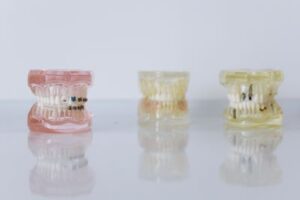 Calcium and Vitamin D Foods
Calcium and Vitamin D Foods
Calcium and vitamin D are essential for maintaining strong teeth and bones. Adequate intake of these nutrients promotes bone regeneration and enhances the success of dental implants.
Include the following calcium and vitamin D-rich foods in your diet:
- Dairy products like milk, cheese, and yogurt.
- Leafy green vegetables such as broccoli and kale.
- Fortified cereals and plant-based milk alternatives.
- Fatty fish like salmon and sardines.
Hydrating Foods
Proper hydration is crucial for the overall healing process, including dental implant healing. Staying hydrated helps maintain a moist environment in your mouth and supports the flow of nutrients to the surgical site.
Hydrate your body with the following foods:
- Watermelon and other juicy fruits.
- Cucumber and celery.
- Soups and broths.
- Herbal teas.
Zinc-Rich Food
Zinc is an essential mineral that plays a vital role in wound healing. Including zinc-rich foods in your diet can boost your immune system and facilitate the healing of the surgical site.
Here are some zinc sources to consider:
- Shellfish like oysters and crab.
- Lean meats such as beef and pork.
- Legumes and beans.
- Nuts and seeds.
Fiber-Rich Foods
Fiber promotes digestive health and regulates bowel movements, which is crucial during the healing process. Consuming fiber-rich foods can prevent constipation and ensure smooth recovery.
Add the following fiber-rich foods to your diet:
- Whole grains like oats, quinoa, and brown rice.
- Fruits such as apples, pears, and berries.
- Vegetables like broccoli, carrots, and Brussels sprouts.
- Legumes and beans.
Foods High in Vitamin K
Vitamin K is essential for blood clotting, which is crucial after dental implant surgery. Including foods high in vitamin K can support proper healing and reduce the risk of excessive bleeding.
Incorporate the following vitamin K-rich foods into your meals:
- Leafy green vegetables like spinach, kale, and Swiss chard.
- Brussels sprouts and broccoli.
- Cabbage and asparagus.
- Herbs such as parsley and basil.
Herbs and Spices
Certain herbs and spices offer anti-inflammatory and antimicrobial properties that can support dental implant healing and overall oral health. Consider using the following herbs and spices in your cooking:
- Turmeric, known for its anti-inflammatory effects.
- Garlic, which has antimicrobial properties.
- Ginger, which aids in reducing inflammation.
- Clove, which has analgesic properties.
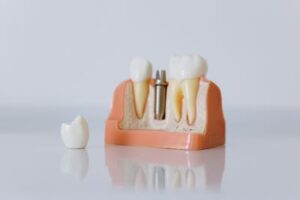 Avoid Sugary and Acidic Foods
Avoid Sugary and Acidic Foods
While it’s essential to focus on foods that promote dental implant healing, it’s equally important to avoid certain foods that can hinder the recovery process. Sugary and acidic foods can increase the risk of complications and delay healing.
Limit or avoid the following:
- Sugary snacks and beverages like candies, soda, and pastries.
- Acidic fruits and juices like citrus fruits and tomato-based products.
- Sticky or hard foods that can put stress on the implants.
FAQs
Can I eat solid foods after dental implant surgery?
After dental implant surgery, it’s best to stick to a soft food diet for the first few days. Soft foods are easier to chew and won’t put excessive pressure on the implants. Gradually, you can introduce solid foods into your diet as your healing progresses.
How long should I follow a soft food diet after dental implant placement?
It’s recommended to follow a soft food diet for about one to two weeks after dental implant placement. However, every individual’s healing process may vary. Consult with your dentist or oral surgeon for specific dietary instructions based on your unique situation.
Is it necessary to take supplements for dental implant healing?
In most cases, a well-balanced diet should provide the necessary nutrients for dental implant healing. However, in some instances, your dentist may recommend supplements, especially if you have certain dietary restrictions or deficiencies. It’s essential to consult with your dental professional before taking any supplements.
Can I consume hot and cold foods after dental implant surgery?
Immediately after dental implant surgery, it’s best to avoid consuming extremely hot or cold foods. Your mouth may be sensitive, and extreme temperatures can cause discomfort. Gradually introduce hot and cold foods as your healing progresses and your sensitivity subsides.
Are there any foods I should completely avoid after dental implant surgery?
Yes, there are certain foods you should avoid after dental implant surgery. Steer clear of hard, sticky, and crunchy foods that can put excessive pressure on the implants and potentially disrupt the healing process. Also, avoid sugary snacks and acidic foods that can increase the risk of complications.
How long does it take for dental implants to fully heal?
The complete healing process for dental implants can take several months. However, most patients start to experience significant improvements within the first few weeks. The exact timeline for full healing depends on various factors, including individual healing abilities, oral hygiene practices, and overall health.
Conclusion
Incorporating the right foods into your diet can significantly contribute to the healing and success of dental implants. Protein-rich foods, vitamin C-rich foods, omega-3 fatty acid sources, and antioxidant-packed foods play vital roles in the healing process. Additionally, calcium and vitamin D foods, hydrating foods, zinc-rich foods, fiber-rich foods, foods high in vitamin K, herbs, and spices are all beneficial for dental implant healing.
Remember to follow your dentist’s instructions regarding dietary restrictions and recommendations for a smooth recovery. By prioritizing nutrition and making conscious food choices, you can enhance the healing process, promote oral and dental health, and enjoy the long-term benefits of dental implants.



